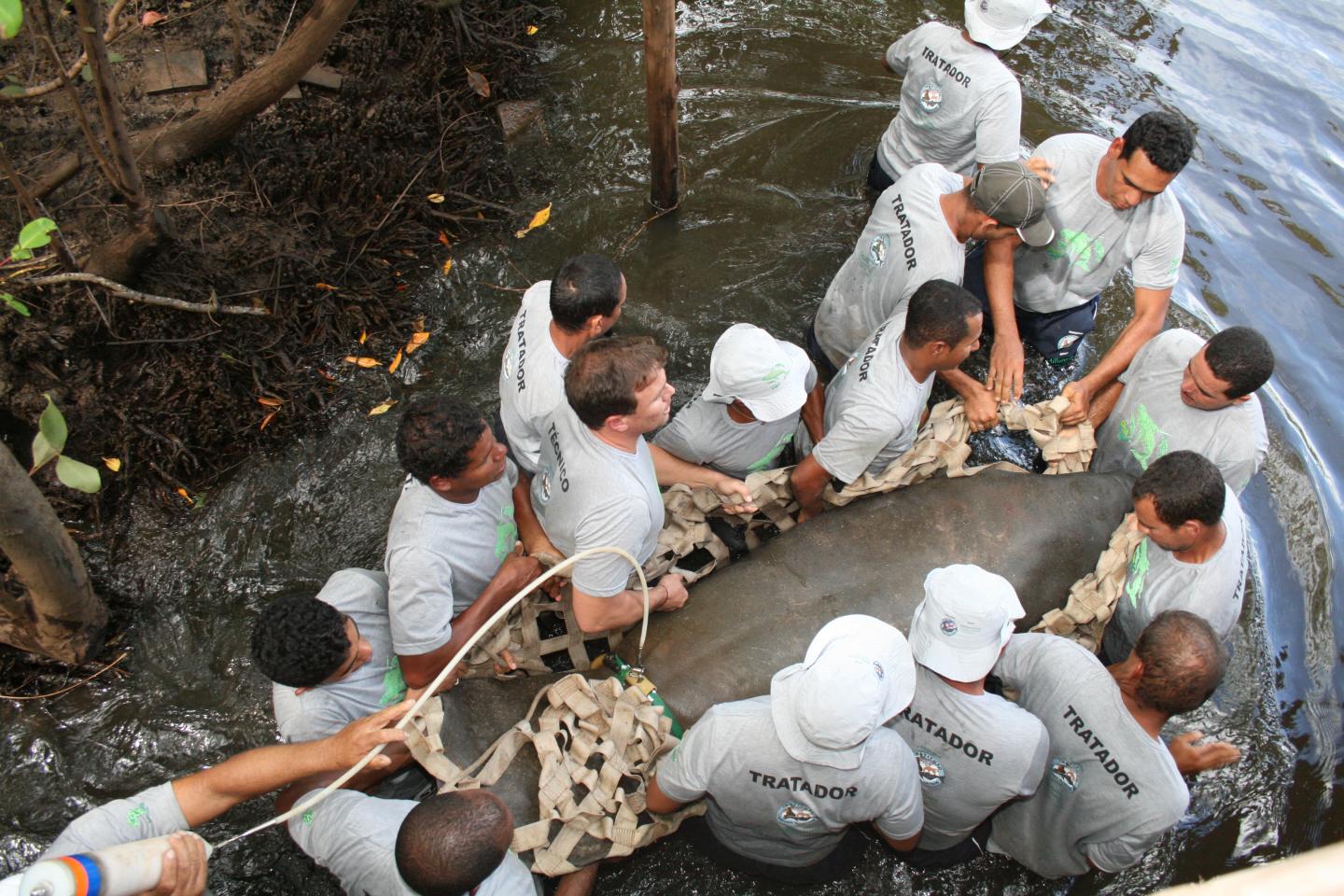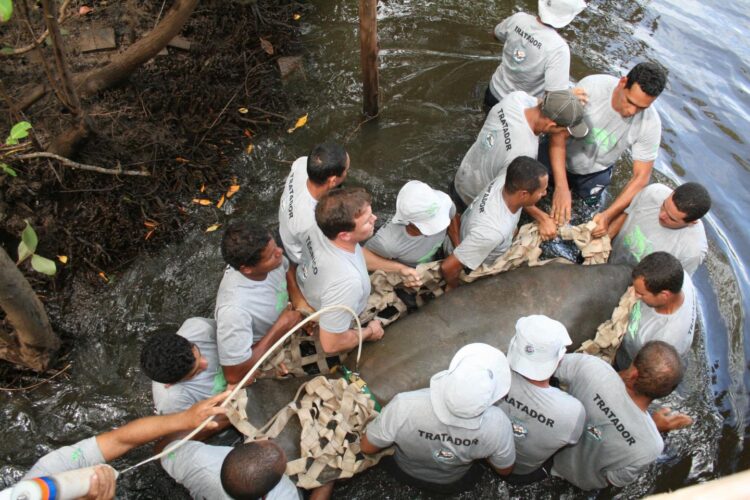Study raises the alarm for better conservation actions

Credit: Luna, Beaver, Nourisson et al.
Worldwide, marine megafauna are at risk of extinction due to climate change, habitat loss, pollution, overhunting, population fragmentation, and hybridization with related species in areas disturbed by humans. Genetic studies can help determine the conservation status of marine animals, identifying threats to species conservation and informing interventions and policies, such as the protection of diversity hotspots or corridors for gene flow.
In a new study in Frontiers in Marine Science, researchers for the first time measured genetic diversity in manatees at a large geographical scale — that is, along the northern coastline of South America. They show that the Antillean subspecies of the West Indian manatee forms a single, non-continuous population along the Brazilian coastline. Manatees from this population occasionally interbreed with the Antillean subspecies population located further North and West, between Guyana and Venezuela. Moreover, there seems to be no natural hybridization between the Antillean Amazonian manatee, even though their habitats overlap in the mouth of the Amazon river.
The Antillean subspecies of the West Indian manatee (Trichechus manatus manatus) and the Amazonian manatee (Trichechus inunguis) (order Sirenia) are both classified as Vulnerable on the IUCN Red List of Threatened Species. Antillean manatees occur across most of the Caribbean and along the Atlantic coast of Central and South America. In contrast, the Amazonian manatee is exclusively found in the mouth of the Amazon River. Historically, both were hunted intensively. Though hunting pressure has subsided, both remain at risk due to further anthropogenic threats, especially habitat degradation and collisions with boats. Manatees have strict habitat requirements, mainly places with seagrass and freshwater, such as estuaries. Due to continuous human pressure on their habitats, such as seagrass meadows, populations have decreased, potentially leading to a decrease in genetic variability.
”Genetic diversity is critical for species to be able to adapt to changing environments and avoid inbreeding and needs to be considered to allow for long-term protection of species,” says coauthor Dr Margaret Hunter from the Wetland and Aquatic Research Center of the U.S. Geological Survey in Gainesville, Florida. “Here we show that manatee populations of Venezuela, Guyana and Brazil have some degree of interrelatedness but overall low genetic diversity.'”
To determine whether there is genetic connectivity between the West Indian and Amazonian manatee, the authors took 17 DNA samples from the Amazonian manatee, 78 from the Antillean subspecies in Brazil (southern cluster of populations) and 11 from Guyana and Venezuela (northern cluster), including adults and calves, and measured diversity at nuclear and mitochondrial neutral genetic markers.
The researchers found no evidence of natural hybridization between the two species. What they did find was evidence of gene flow between the northern and southern cluster of Antillean manatees. It seems the physical barrier of the Amazon River plume is not enough to block gene flow between the northern and southern cluster.
”These results make it possible for us to understand current genetic diversity of the Brazilian West Indian manatee population,” says coauthor Dr Fábia de Oliveira Luna from Chico Mendes Institute for Biodiversity Conservation – National Center for Research and Aquatic Mammals Conservation, Brazil. ”We call on policymakers to improve the national action plan. An important action is the creation of new protected areas, which help establish biological corridors and promote gene flow. Another is to protect habitats where manatees give birth. Newborn calves have stranded along the Ceará and Rio Grande do Norte coastline of Brazil: upon rescue, these should released into the genetic population of origin, or in gap areas without residing manatees. In contrast, captive breeding should be avoided for now as enough calves are born in the wild.”
###
Media Contact
Mischa Dijkstra
[email protected]
Related Journal Article
http://dx.





